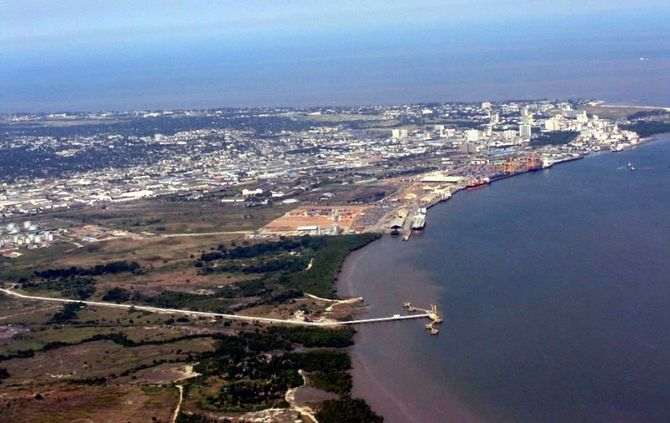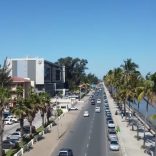South32 flags impairment of Mozambique aluminium smelter
Government seeks to relaunch cabotage services in Mozambique

A Bola (file photo) / The mouth of the river Púnguè, near Beira, sofala province
The Ministry of Transport and Communications (MTC) is looking for ways to obstacles to the relaunch of maritime cabotage (coastal freighting) services in Mozambique, which, according to Minister Carlos Mesquita, will facilitate economic and cultural integration.
Addressing his ministry’s coordinating council, Mesquita argued that the removal of barriers to cabotage will bring Mozambique’s regions closer together, reduce economic distances, stimulate competitiveness and create conditions favourable for development and social progress.
“The revitalisation of maritime cabotage will ensure the flow of goods throughout the country at competitive prices, because of the advantage that bulk shipping has over road transportation,” he explained.
According to a ministry source, an inter-ministerial technical team has been created to “recast the framework” of cabotage, and a project is to be submitted to the Council of Ministers in late July.
Last June, memorandums of understanding were signed with port operators reducing port taxes by 50 percent, navigation aid rates by more than half, and clearance fees by 40 percent for coastal traffic.
Other measures include making pilotage and tug services optional for coastal vessels and giving them priority berthing in national ports.
The Ministry of Transport and Communications said a draft decree on the introduction of a second register for foreign-flag vessels has already been developed and harmonised with all maritime stakeholders, including the Confederation of Economic Associations (CTA), provided they form a partnership with a national shipping company for a period of at least five years.
“We are working with Customs to remove administrative barriers that prevent maritime cabotage while safeguarding the state’s interest in collecting revenue’, the MTC says.
The initiative falls within the implementation of the Strategy for Integrated Transport System Development and complies with the targets set out in the government’s Five-Year Plan, joining a number of inter-connected and combined transportation projects aimed at facilitating investment, mobility and trade and developing tourism.
“These projects will facilitate regional economic integration and expand development opportunities,” the source says, adding that the projects align with the government’s four priorities ‘pillars’; agriculture, energy, infrastructure and tourism.












Leave a Reply
Be the First to Comment!
You must be logged in to post a comment.
You must be logged in to post a comment.